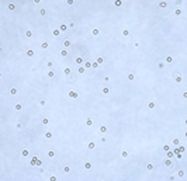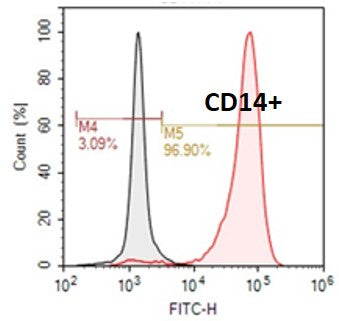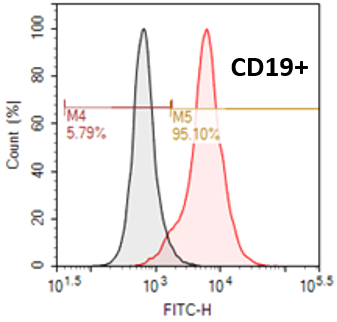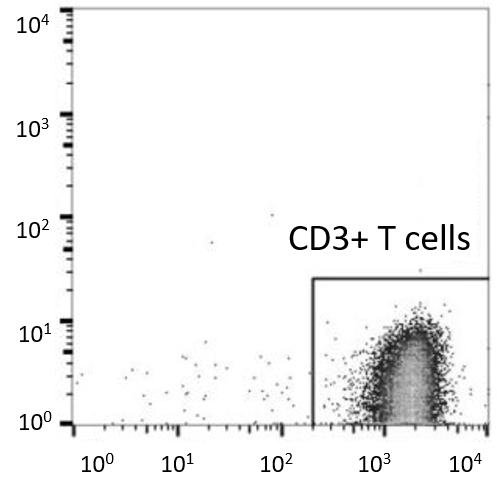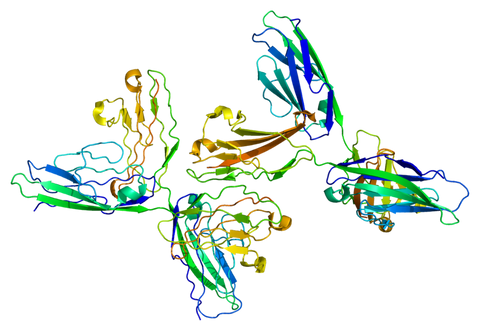
Human Cord Blood CD56+ Nk Cells
CD56+ Natural killer (NK) cells are cytotoxic effector lymphocytes of the innate immune system that play key role in rejection of tumors and microbial infections. NK cells inhibit the spread of the infections and tumors by releasing perforin and granzymes that cause the target cell to die through apoptosis.
NK cells provide rapid responses to viral-infected cells, acting at around 3 days after infection, and respond to tumor formation. Typically, immune cells detect major histocompatibility complex (MHC) presented on infected cell surfaces, triggering cytokine release, causing lysis or apoptosis. NK cells are unique, however, as they have the ability to recognize stressed cells in the absence of antibodies and MHC, allowing for a much faster immune reaction. They were named "natural killers" because of the initial notion that they do not require activation to kill cells that are missing "self" markers of MHC class 1. This role is especially important because harmful cells that are missing MHC I markers cannot be detected and destroyed by other immune cells, such as T lymphocyte cells.
Our Human Cord Blood CD56+ NK cells are isolated from cord blood mononuclear cells by immunomagnetic selection. All cord blood is collected in Citric Phosphate with Dextrose Buffer (CPD) from fully consented IRB approved donors that are tested negative for HIV, HBV and HCV.
CD56, also called Neural cell adhesion molecule (NCAM), is a homophilic binding glycoprotein expressed on the surface of neurons, glia and skeletal muscle. Although CD56 is often considered a marker of neural lineage commitment due to its discovery site, CD56 expression is also found in, among others, the hematopoietic system. Here, the expression of CD56 is most stringently associated with, but certainly not limited to, natural killer cells. CD56 has been detected on other lymphoid cells, including gamma delta (γδ) Τ cells and activated CD8+ T cells, as well as on dendritic cells. NCAM has been implicated as having a role in cell–cell adhesion, neurite outgrowth, synaptic plasticity, and learning and memory.



